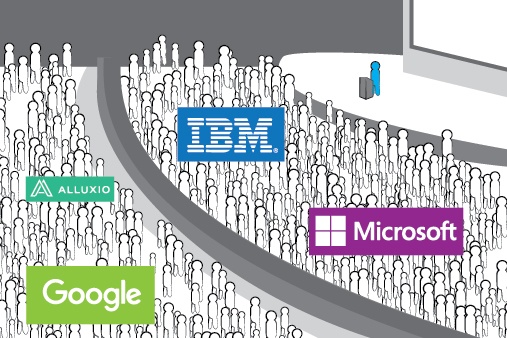Artificial intelligence is no longer just evolving nomenclature in IT. With the technology’s recent progress, organizations of all shapes and sizes are taking interest. With the mainstream press and industry analysts from every corner weighing in, it is worth taking stock of the technology and learning how to differentiate between three arguably over-hyped terms: machine learning, artificial intelligence (AI), and deep learning.
It’s best to consider the concentric model depicted in the figure below. AI is shown as the superset since it was the idea that came first, and it has been evolving and expanding since then. A subset of AI is machine learning, which came out of the quest of AI at an early stage. The innermost subset is deep learning, which is just one class of machine learning algorithms. Deep learning is a hot area right now, and the one most typically associated with the rise in AI today.












